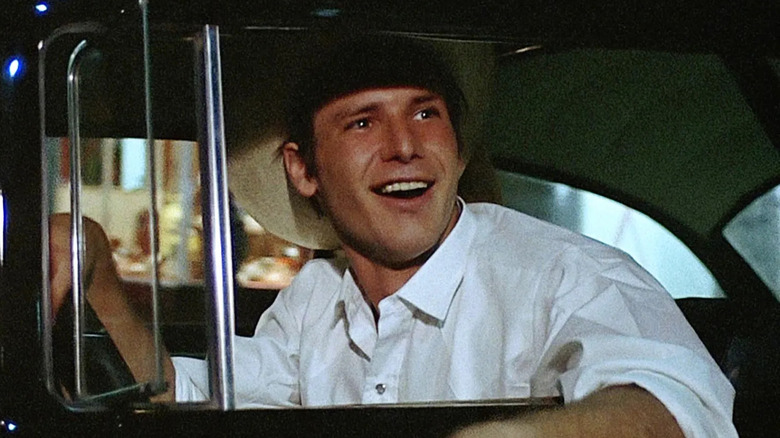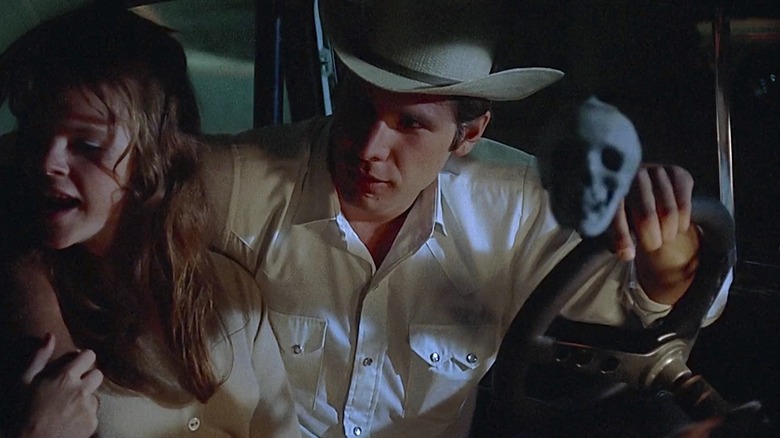Harrison Ford's American Graffiti Singing Was Seen As An Insult To Rodgers And Hammerstein
Harrison Ford's acting legacy is built on the sturdy pillars of smizing and gruff sarcasm. From "The Fugitive" to "Star Wars," to that one time he tried to make fedoras cool, Ford's catalogue rings with all the standard hallmarks of a classic, cinematic action hero. What it doesn't ring with, however, is actual music, so it might be surprising to hear that Ford has a well-documented history of singing.
In Paramount Pictures' 1985 crime thriller "Witness," Ford warbles along to Sam Cooke's "Don't Know Much About History." In multiple interviews (like this one with ABC, and this one with Peter Travers), he jumps on the first opportunity to crank out a few bars. And why shouldn't he? Singing soothes the soul.
Now, while it's no secret that Ford probably won't be headlining Madison Square Garden in the near future, some have taken his perceived level of talent as a personal insult. Here's a slightly older story about how the musical theatre community once vehemently fought back when Ford tried to inject a little Rodgers and Hammerstein, the composing duo behind works such as "Oklahoma!" and "The Sound of Music," into his 1973 performance in the film "American Graffiti."
Some disenfranchised evening
"American Graffiti" is a coming-of-age film about American teenagers doing American teenager things in 1962. Mechanically, it's a series of vignettes showcasing talents such as Richard Dreyfuss, Ron Howard, and Cindy Williams. It was also the first film to be released by Lucasfilm. That's right, for those who didn't know, "Star Wars" wasn't Harrison Ford's first employment by George Lucas. In "Harrison Ford: The Films," a biographical look into the star's career as written by Brad Duke, it's shared that Ford attempted to spice up his "American Graffiti" character with a little musical theatre magic.
According to Duke, Ford wanted his character, Bob Falfa, to try wooing Laurie Henderson (Cindy) with music. After unsuccessfully experimenting with melodies from the Everly Brothers, Ford landed on "Some Enchanted Evening" from the Rodgers and Hammerstein musical "South Pacific." In Duke's own words ... "Some criticized the rendition as an insult to the original lyricist Ezio Pinza. It was apparent that Ford suffered from severe tone-deafness, and he was further ridiculed for his poor attempts to ad-lib the lyrics he didn't know." Yikes, it can't get much worse than that ... right?
It can! Richard Rodgers himself denied Lucas the rights to use his music because he considered Ford's performance an insult to the talents of his late partner, Oscar Hammerstein. Despite this, Ford's musical performance would later be added into the 1978 re-release of "American Graffiti," just a year after "Star Wars: A New Hope." This Star Wars installment gave Lucas and Ford the social power to pretty much do whatever they wanted, once and for all proving that laser swords earn more street cred than singing nuns.

